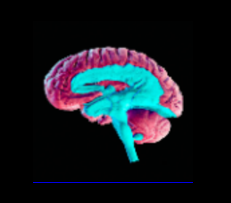Author: DynamicBrain Inc.
Publication: Monthly Newsletter
Published Date: October 21, 2023
Brain speed is the signature deficit of aging, as our Dr. Merzenich explains it. This means that, if we’re slower in thinking and responding, can’t react quickly when driving, experience a lag in our hearing, or can’t follow younger people’s conversations, how fast our brain processes information has declined. Dr. Merzenich says that processing speed is a key index of our brain health. Its diagnostic value can be compared to blood pressure measurements for cardiovascular health.
The good news is that 25 scientific papers have shown that BrainHQ auditory and visual system training speeds up brain processing. On average, the training increases auditory processing speed by 135% and visual processing speed by 200%.
With this scientific knowledge in mind, do your part now and train hard with BrainHQ. If you still don’t have full access, join now.

Kind regards, Frieda Fanni
President
DynamicBrain Inc.
DynamicBrain Inc. is the Canadian partner of Posit Science Corporation since 2010 providing brain fitness program BrainHQ in English and French.
|
 |
 Making memories stick
Making memories stick
Trying to recall a memory can be like searching for a book in a library. That’s where your hippocampus comes in. It’s an area deep within your brain that’s critical for memory retrieval. It acts as the librarian to the memory library of your brain. But how are certain long-term memories stored in this library, and what makes them stick around for the long term?
Read what scientists have discovered about the “glue” that’s responsible for making memories stick.
 Rewiring the brain for motherhood
Rewiring the brain for motherhood
It’s well understood that pregnancy hormones bring about dramatic physical changes for an expected mother. An intriguing new study with mice has shown that pregnancy hormones also bring about dramatic changes to the brain—effectively rewiring the brain in preparation for motherhood. The rewiring switches on parental behaviour even before offspring arrive.
Learn how this prepares pregnant mice for motherhood and what researchers believe this study tells us about humans.
 Disease risk among males and females
Disease risk among males and females
For many years, researchers have noticed that psychiatric and neurological conditions occur at different rates in males and females. Yet, the fundamental reasons behind these disparities have largely remained a mystery. Now, new research provides insights into how biological sex affects brain function and the likelihood of different brain-associated diseases.
Find out how this research gives us a more complete picture of brain-associated diseases by studying each sex separately and together.